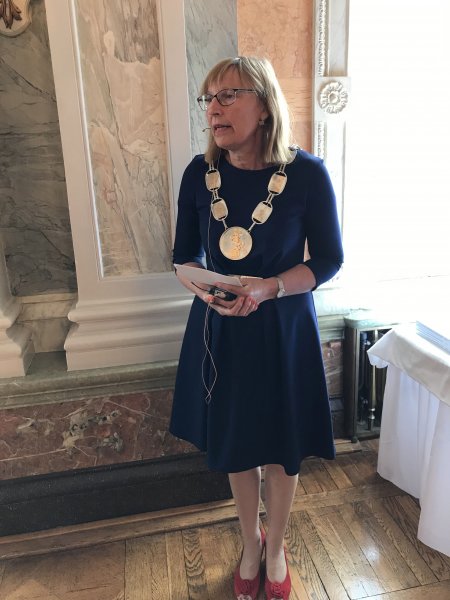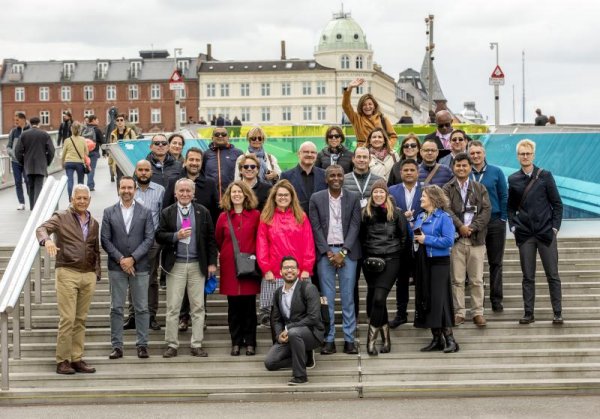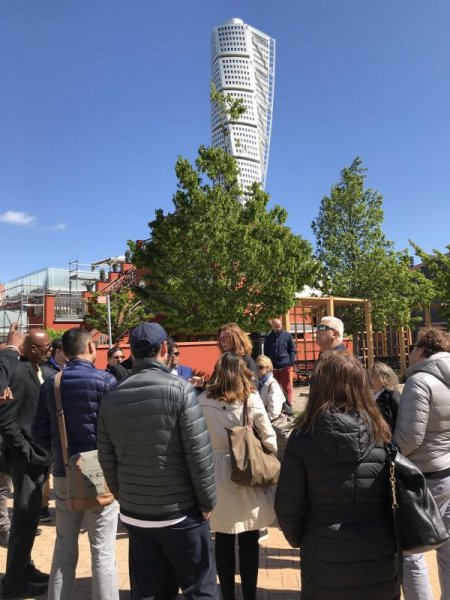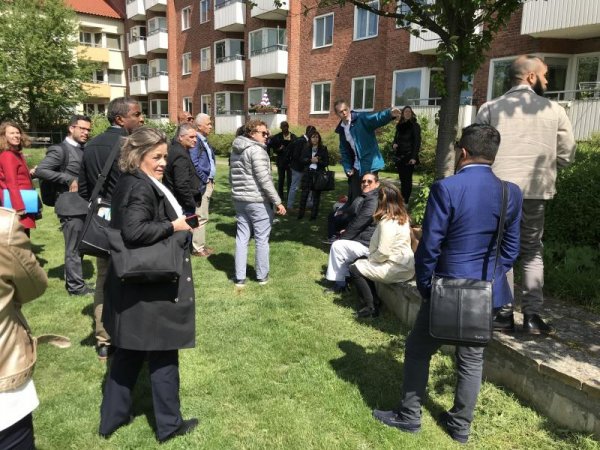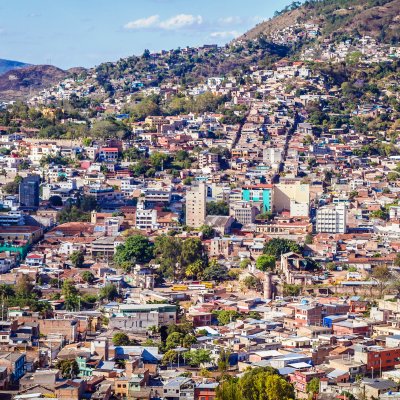Malmö shows the way
The urban workshop to learn from Nordic experience wraps-up in Malmö
Malmö Mayor Carina Nilsson welcomed the delegation of mayors and urban planners from Latin America and the Caribbean to a reception at the Old City Hall. The reception took place on Wednesday 29 May, the last day of the urban workshop focused on learning from Nordic experiences. She told how Malmö and Copenhagen are closely integrated and how they share a long common history. In recent years, Malmö has been able to reinvent itself after several large industries closed in the 1980s and early 1990s and the city went into a decline. The new Malmö is one of the greenest and most diverse cities in Europe and has a focus on sustainability, knowledge and cultural economy.
A lecture by the Malmö City gender unit on its efforts to mainstream gender into its policies, plans and activities was followed by a visit to the Western Harbour to see how a run-down, contaminated industrial area has been transformed into a prime example of sustainable living and working.
At the Eco-City Augustenborg, the delegation had a first-hand look at a sustainable urban drainage system that efficiently manages urban stormwater to control flooding. The Augustenborg neighbourhood used to suffer from annual flooding caused by the old sewage drainage system being unable to cope with the combination of rainwater run-off, household wastewater and pressure from other parts of the city. Today, the rainwater from roofs, roads and car parks is channelled through trenches, ditches, ponds and wetlands, with only the surplus being directed into a conventional sewer system. Green roofs have been installed on all developments built after 1998, and retrofitted on 10,000 square meters on an existing building. As a result, problems with flooding have ceased and the image of the area has been significantly improved.
The Sustainable Business Hub (SBH) in Malmö presented to the delegation how the public sector with regional and local authorities, private companies, utilities, universities and research institutes, work together to seek solutions for sustainable urban development.
The delegation of mayors and urban planners came from the following cities: Mendoza in Argentina; Bridgetown in Barbados; La Paz, Bolivia; Manaus and Vitoria in Brazil; Santiago and Providencia in Chile; Rionegro (Medellin) and Barranquila in Colombia; Georgetown in Guyana; Tegucigalpa in Honduras; Guadalajara, Mexico; Asunción, Paraguay; Lima, Peru; and Port of Spain and San Fernando, both in Trinidad and Tobago. The Urban Workshop: Learning from Nordic Experience is a three-day dynamic event with a mix of panel discussions and site visits. The event is organised by the Inter-American Development Bank (DB) and Nordic Development Fund (NDF) in collaboration with the Confederation of Danish Industry (DI), and the cities of Copenhagen and Malmö.
The event is linked to the NDF support to the Emerging and Sustainable Cities Initiative in Latin America.

